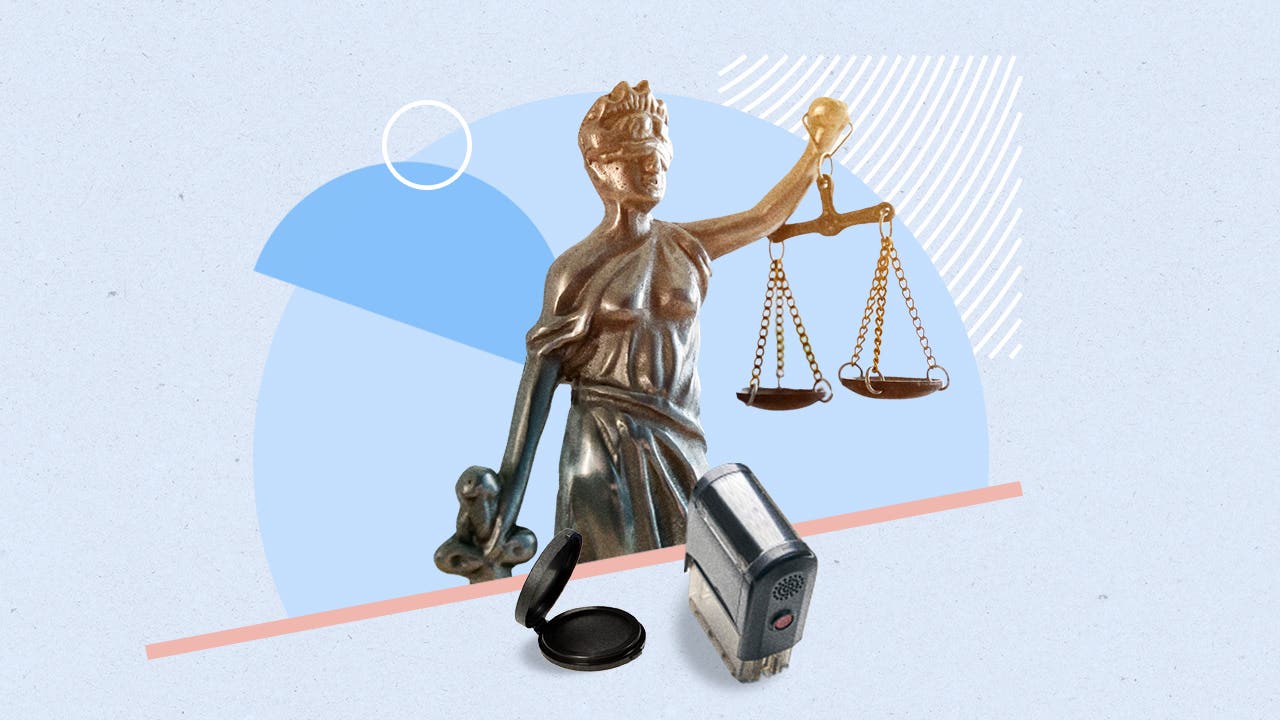What is a notary and what do they do?

Our writers and editors used an in-house natural language generation platform to assist with portions of this article, allowing them to focus on adding information that is uniquely helpful. The article was reviewed, fact-checked and edited by our editorial staff prior to publication.
A notary public, also simply known as a notary, is someone publicly commissioned to impartially witness and validate the signing of various important documents. The official acts performed by a notary are called notarizations.
Some common documents that require notarizations include:
- legal affidavits
- commercial leases
- passport applications for children
- mortgage documents
As a public official, a notary is required to be impartial. Impartiality means that the notary is not influenced by self-interest and does not discriminate based on race, gender, nationality, religion, politics or other such categories.
Key takeaways
- A notary public is an official responsible for witnessing and validating the signing of various documents.
- Notaries are important for deterring fraud and ensuring the signer is willingly participating in the transaction.
- The process and cost of becoming a notary varies by state, and it can run between under $100 to several hundred dollars.
- Notary services are available at various businesses and can also be done online, with fees commonly ranging from $1 to $25.
Why are notaries important?
There are two main purposes to notarization: deterring fraud and establishing that the signer is a willing participant in the transaction they’re signing for.
A notary will generally ask the signer for photo identification before the signing. In some cases, they may put the signer under an oath. If there is evidence of fraud or the notary is uncertain about the signer’s identity, they can refuse to authenticate the document.
Notaries are also tasked with checking that the person signing the document is doing so of their own free will without any coercion, and with making sure they understand the contents of the document or transaction.
How to become a notary
The requirements to become a notary vary from state to state. For instance, some states require you to be a resident, while others also accept applications from those who live elsewhere but work in the state. Other common requirements are that you are at least 18 years old and have no felony convictions.
The general process of becoming a notary is:
- Fill out an application through the state.
- Pay the state’s application fee.
- Take a training course or pass an exam.
- Receive a commission certificate from the state.
- File your bond and oath of office.
- Buy notary supplies.
The whole process can take between four and nine weeks, depending on how many steps the state requires.
How much does it cost to be a notary?
The cost of becoming a notary varies by state. It can range anywhere from less than $100 to several hundreds of dollars. The total cost includes the application filing fee, notary training, exam fees, background screenings, notary supplies and the cost of a required bond (not required in all states).
Notary supplies such as certificates, a seal, and a journal are required, and their costs can vary.
Where to get documents notarized
Notary services are available at a variety of businesses. Some notary services are also mobile, so the notary can travel to the signer’s location.
Common types of businesses that offer notary services include:
- American Automobile Association (AAA)
- Banks
- Colleges and universities
- Law firms
- Libraries
- Photocopy shops
- Real estate firms
- Shipping stores
Getting a document notarized online
Notarizations are available online through sites such as Notarize or OneNotary. In these cases, the notary and the signer meet virtually. The notary verifies the signer’s willingness to sign the document, attaches an electronic seal and attaches a digital certificate with their electronic signature. The notary may be required to keep an audio and visual recording of the notarization.
What is the cost of getting a document notarized?
The maximum fee a notary can charge varies by state. Most notary services range between $1 and $15. Online notary services may cost up to $25. Some banks and libraries offer notarization services to their customers free of charge.
Bottom line
Notaries have an essential role in preventing fraud when it comes to important transactions. You can often obtain notary services at businesses such as banks and shipping stores, and you may also have the option to get your documents notarized online.
The steps and cost of getting a document notarized vary by state, so make sure to check your state’s requirements.
— Bankrate’s René Bennett wrote a previous version of this story.
Why we ask for feedback Your feedback helps us improve our content and services. It takes less than a minute to complete.
Your responses are anonymous and will only be used for improving our website.
You may also like





